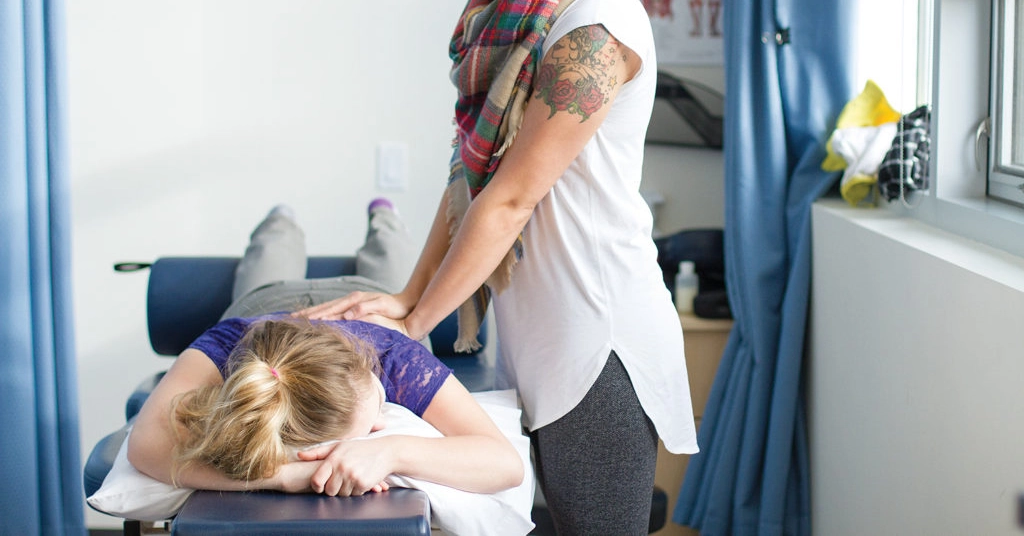Welcome back from the holidays! It’s time to get ready for a new year and a new semester. I hope that all of you were able to get plenty of rest and spend time with your loved ones. Relaxation and a social life are key elements of emotional and psychological wellness, so we shouldn’t take them for granted. In fact, this month, our entire edition is focused on wellness. Taking care of yourself is really important, especially during the winter, when it’s dark for almost 16 hours a day and you’ve already endured an entire semester of stress and assignments.
We talked to a MacEwan University acupuncture professor about how acupuncture can contribute to wellness and what a student can expect if they receive a treatment on campus.
Whether you’re slammed with assignments or you’ve got some personal stuff weighing you down, we’re all susceptible to mental health challenges. To find out more about how you can address these issues on campus, we interviewed Craig Gnauck, chair of MacEwan’s Wellness and Psychological Services department, as well as Kevin Ulliac from Peer Support. Read on to see how counselling and peer-to-peer supportive listening can benefit you during times of crisis.
Of course, stress doesn’t just take a toll on your mind; it also affects your body. Did you know that you can get massages on campus for just $20? Massage students take part in clinical practice for 10 months each year, so there are plenty of opportunities to take advantage of this sweet deal. Speaking of good deals, don’t forget that a variety of free classes are included with the gym membership that you pay for in your student fees!
Students are sitting at desks all day, often sedentary for many hours, which can lead to a sore body. We asked Kristin Constantinoff, a certified athletic therapist and trainer at Sport and Wellness, to show us some stretches that would help combat aches and pains resulting from sitting. Check out her advice and our illustrative photos.
Fish oil might sound like a gross thing to consume, but it’s one of the supplements recommended by Nicole Fodor, a local holistic nutritionist. She also recommends four other supplements suitable to student needs.
When the going gets rough, sometimes our coping mechanisms are not productive. At one time or another, many of us have had a few too many drinks in order to cope with our stress. When that behaviour becomes a pattern, you might want to consider whether you are dealing with an addiction. It’s hard to recognize addiction in students because it’s so ingrained in our age demographic and university culture, but that doesn’t mean we can’t experience it. Find out how to spot problematic patterns and what you can do about them.
Upon entering university, getting our first jobs, and moving out on our own for the first time, most of us probably needed help figuring out how to budget and manage our finances. Even after having a bunch of jobs and living on their own for years, many people still struggle when it comes to saving money and reducing expenses. Check out our basic guide to budgeting.
Abraham Maslow presented his psychological theory of human needs in 1943, and it is still regularly taught to students in intro-level psychology classes. We wanted to get a MacEwan professor’s take on the theory and whether it remains relevant today.
When you saw that this month’s magazine was wellness-themed, did you cringe? Did it remind you of Twitter hashtags? We explore whether wellness is just a buzzword for some people.
For this month’s Final Thoughts, Ana Holleman shares her experience with social stigma and discusses the positive effect that MacEwan has had on her social wellness.
I sincerely hope that our articles help you start 2016 on a healthy, happy note.





0 Comments